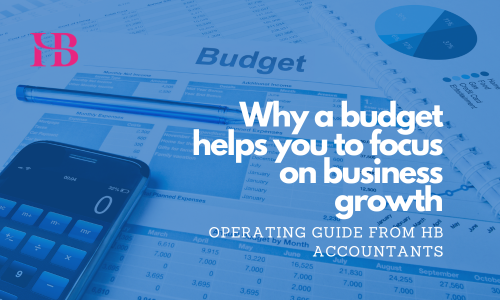It’s a delicate balancing act to keep expenses down whilst still investing in growth and innovation. It is tough but it is possible to reduce costs without impacting growth by identifying and eliminating wasteful spending and ultimately build a lean, efficient business that can weather economic storms and be poised to seize new opportunities. Here are 5 proven cost reduction strategies that can help your business achieve longterm positive results.

What is cost reduction?
Unlike short-term cost cutting measures (temporary savings at the expense of long-term growth), cost reduction is a proactive and strategic process of identifying and eliminating unnecessary business expenses. It’s a way of reducing unnecessary expenses, to improve cash flow, increase profitability, and free up resources to invest in strategic initiatives or boost your team.
How to determine where there are cost reductions?
The Harvard Business Review recommends listing all the expenses related to the activities of the business and metaphorically moving them into a “car park”. One by one discuss and decide whether to let them back into your business. We like this idea!
5 proven ways to reduce costs without impacting your business
1. Consolidate suppliers and renegotiate contracts
By consolidating your purchasing to a smaller number of reliable suppliers, you can often secure better pricing as you increase your purchasing power. You can also reduce indirect costs through simplified communication, streamlined ordering and invoicing processes, and (hopefully!) improved service levels. The downside is that it is easy to become over-dependent on a single supplier so ensure that you have a back up and continue to hold regular supplier performance reviews – we recommend at least annually.
The annual supplier review is a great time to renegotiate your supplier contracts and look for ways to negotiate better pricing and terms, secured by your purchasing power.
2. Outsource services
Employment costs are increasing all the time, more so after the recent Autumn Budget review. Outsourcing services is often a fantastic way to reduce costs and the new service provider is likely to have a lower overall cost, especially when you take into account tax, NICs, office costs, expenses, holidays, sick pay and so on.
Needless to say, we recommend outsourcing accountancy support, as well as bookkeeping and payroll. You may also wish to consider outsourcing some PA services, marketing, website management, and even sales. Of course, you will need to build in reviews and regular contact to ensure that you control what is delivered and that it continues to meet your business needs and your expectations.
3. Consider remote working
The shift towards remote work during office lockdowns has revealed the opportunity for cost reduction. By embracing a remote or hybrid work model, your business can significantly reduce expenses in relation to office space, utilities, and overhead costs.
If you’re switching to a remote model, you may want to invest in communication hubs like Slack and project management tools like Trello to keep tasks organised. While there may be some upfront costs associated with the transition, the long-term savings and productivity gains can be substantial. Also bear in mind that it’s important to bring the team together regularly in person – this boosts team wellbeing but also enables the creative spark to flourish.
4. Use technology to automate processes
Automation can save a lot of time. Accountancy platforms such as Xero, for example, can transform your financial processes by automatically categorising expenses or issuing invoices and reconciling payments, for example, thus eliminating the need for manual data entry.
There are many ways that technology can streamline your work – if you post on social media, you could invest in the use of scheduling software, and there’s technology that can consolidate ordering, keep track of stock in warehouses, book transport and so much more. Use software that automatically turns your notes into presentations or diary entries – and you could automate your meeting bookings by adding a widget to your calendar. It’s definitely worth time and effort to explore the options.
5. Reduce unnecessary meetings
An excessive number of meetings or really long meetings take so much time out of the working day. These not only reduce the amount of time available for working, they can exhaust and demoralise your team too. A few ‘rules’ will help keep meetings dynamic and beneficial. We recommend establishing clear meeting agendas and nominating someone in each meeting whose role it is to stick to them, encourage focused discussions and limit meeting times to no more than 40 minutes, and (we like this one!) use the “two-pizza rule” – if two pizzas can’t feed the entire group, the meeting is too large!
By promoting this culture of discipline, you can still harness the collective creativity and effort of your entire workforce and boost your cost reduction efforts.
How we help you to cost save?
The HB team is always available to support your accountancy needs and discuss ways to boost your productivity.
If you would like to learn more about the services that we offer, discover how we can give you real confidence in the future of your business, or if you are a larger business that requires auditing, then contact us today. We’re accountants for business and we are here to help you grow efficiently.
The information contained above is for general guidance purposes only. Whilst every effort has been made to ensure the contents are accurate, please note that each individual has different circumstances and it is essential that you seek appropriate professional advice before you act on any of the information contained herein. HB Accountants can accept no liability for any error.
Read our latest blogs below
- HMRC Advisory Fuel Rates (AFRs) from 1st June 2025
 HMRC has published the latest Advisory Fuel Rates (AFRs) which apply from 1 June 2025. AFRs are the official rates used when reimbursing employees for business mileage in company cars. They’re reviewed every quarter (February, May, August and November) and adjusted in line with fuel prices.
HMRC has published the latest Advisory Fuel Rates (AFRs) which apply from 1 June 2025. AFRs are the official rates used when reimbursing employees for business mileage in company cars. They’re reviewed every quarter (February, May, August and November) and adjusted in line with fuel prices. - How an audit can help your business (and actions you can take to make it go smoothly too!)
 An audit may be a legal requirement for your business but a well managed audit can also boost your business growth and ensure that it is operating in the best way possible.
An audit may be a legal requirement for your business but a well managed audit can also boost your business growth and ensure that it is operating in the best way possible. - Why a budget helps you to focus on business growth
 Are you looking for clarity over the future direction of your business? Do you want to know the actions you should take in order to grow your business? Then consider taking time to create a budget for your business.
Are you looking for clarity over the future direction of your business? Do you want to know the actions you should take in order to grow your business? Then consider taking time to create a budget for your business. - How a SME Owner Can Create More Time
 SME owners and managers – are you part of the one in five small and medium-size enterprise managers that work on average an additional 3 hours a day on a regular basis? Or one of the 33% that claim that there just aren’t enough minutes in a day to get everything completed? (The Independent study … Continue reading
SME owners and managers – are you part of the one in five small and medium-size enterprise managers that work on average an additional 3 hours a day on a regular basis? Or one of the 33% that claim that there just aren’t enough minutes in a day to get everything completed? (The Independent study … Continue reading - A New Academic Year for our Student in Zambia
 As the new academic year unfolds in Zambia, we are delighted to share an update about our sponsored student, Getrude. Currently in her second year at Chalimbana University, Gertrude is studying Business Administration in Accounting and Finance.
As the new academic year unfolds in Zambia, we are delighted to share an update about our sponsored student, Getrude. Currently in her second year at Chalimbana University, Gertrude is studying Business Administration in Accounting and Finance. - Benefits in Kind via the Payroll
 From April 2027, Benefits in Kind (BIK) payments will need to be paid and recorded via payroll each month. Businesses need to prepare for this change.
From April 2027, Benefits in Kind (BIK) payments will need to be paid and recorded via payroll each month. Businesses need to prepare for this change.

